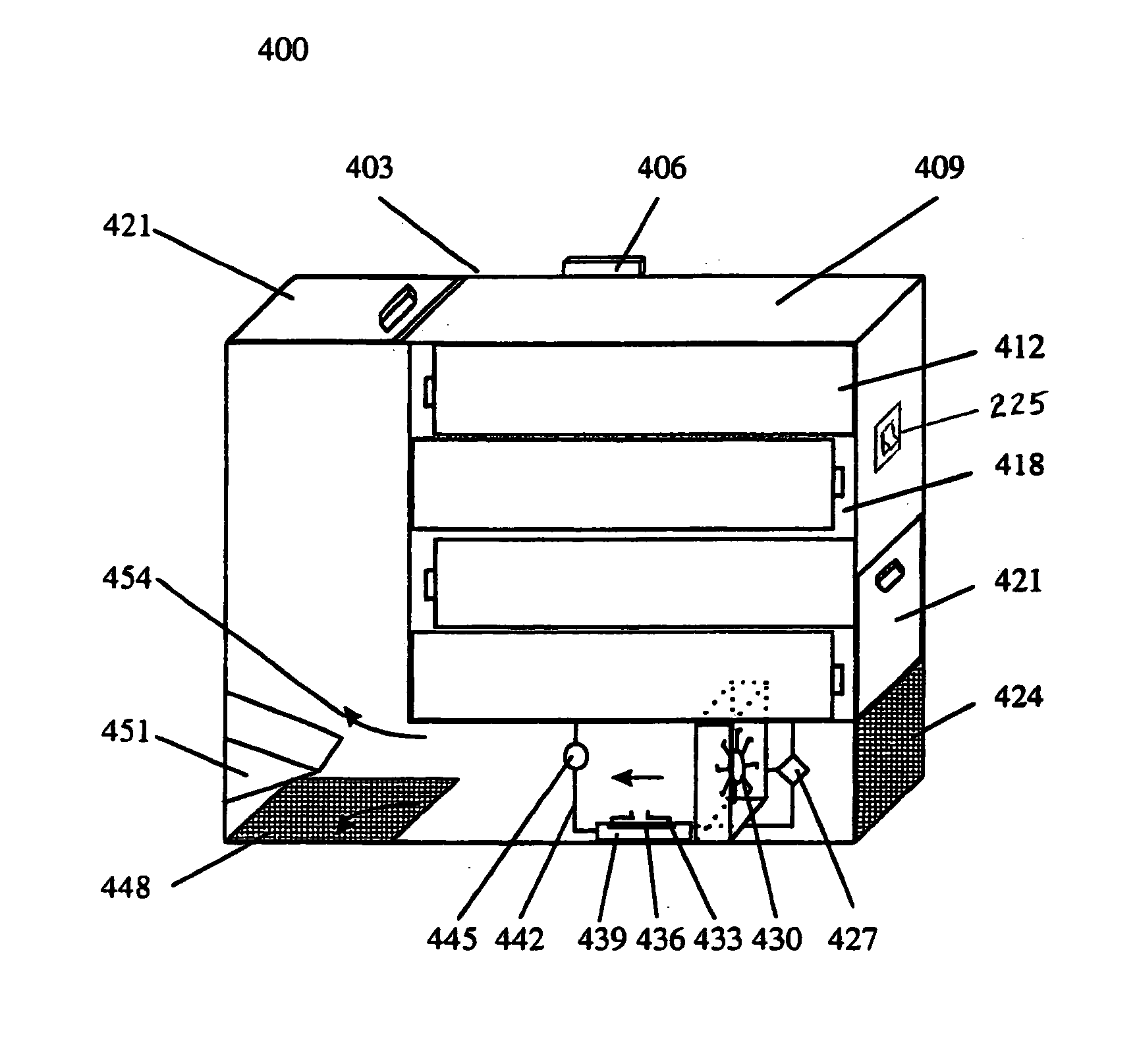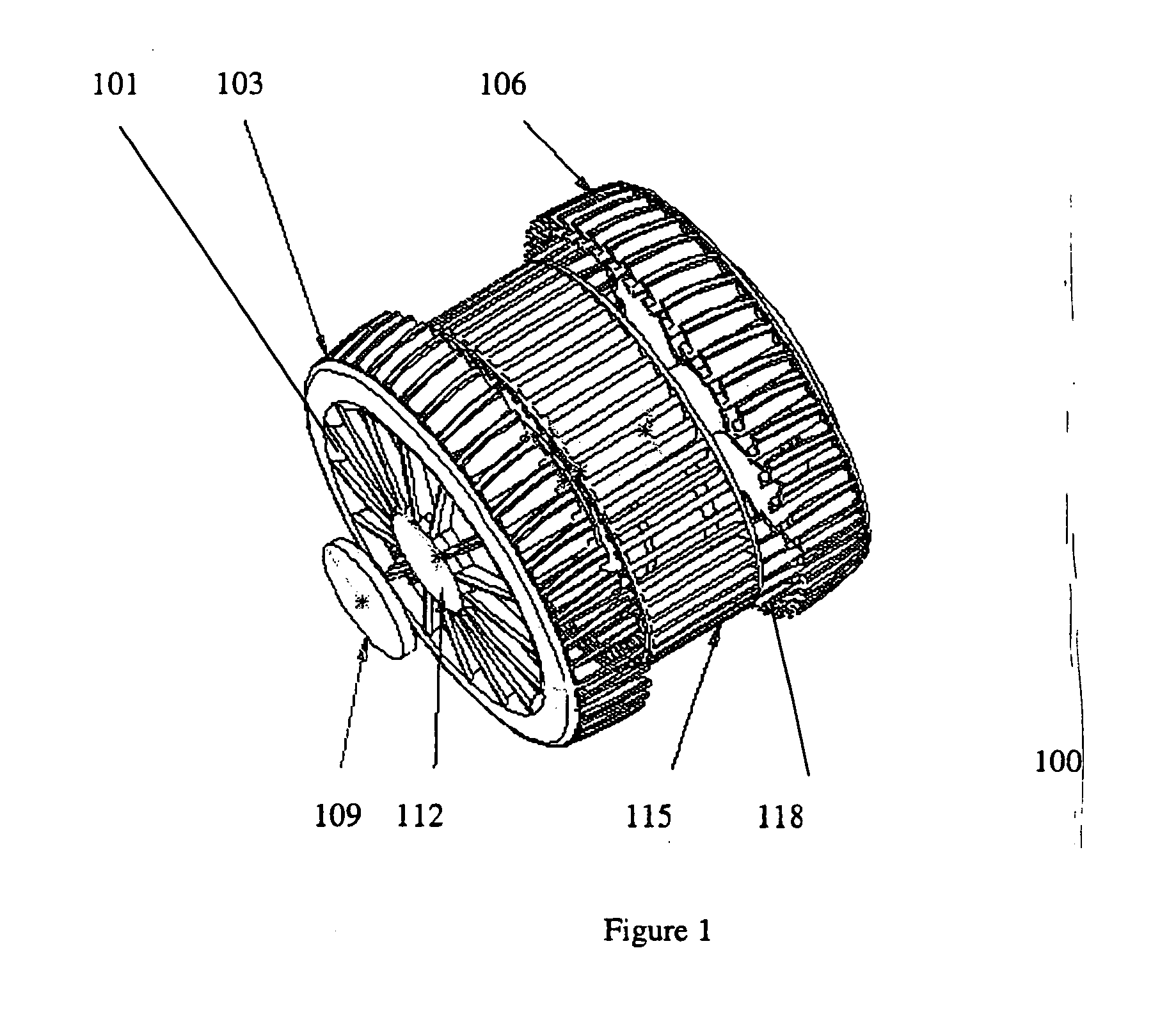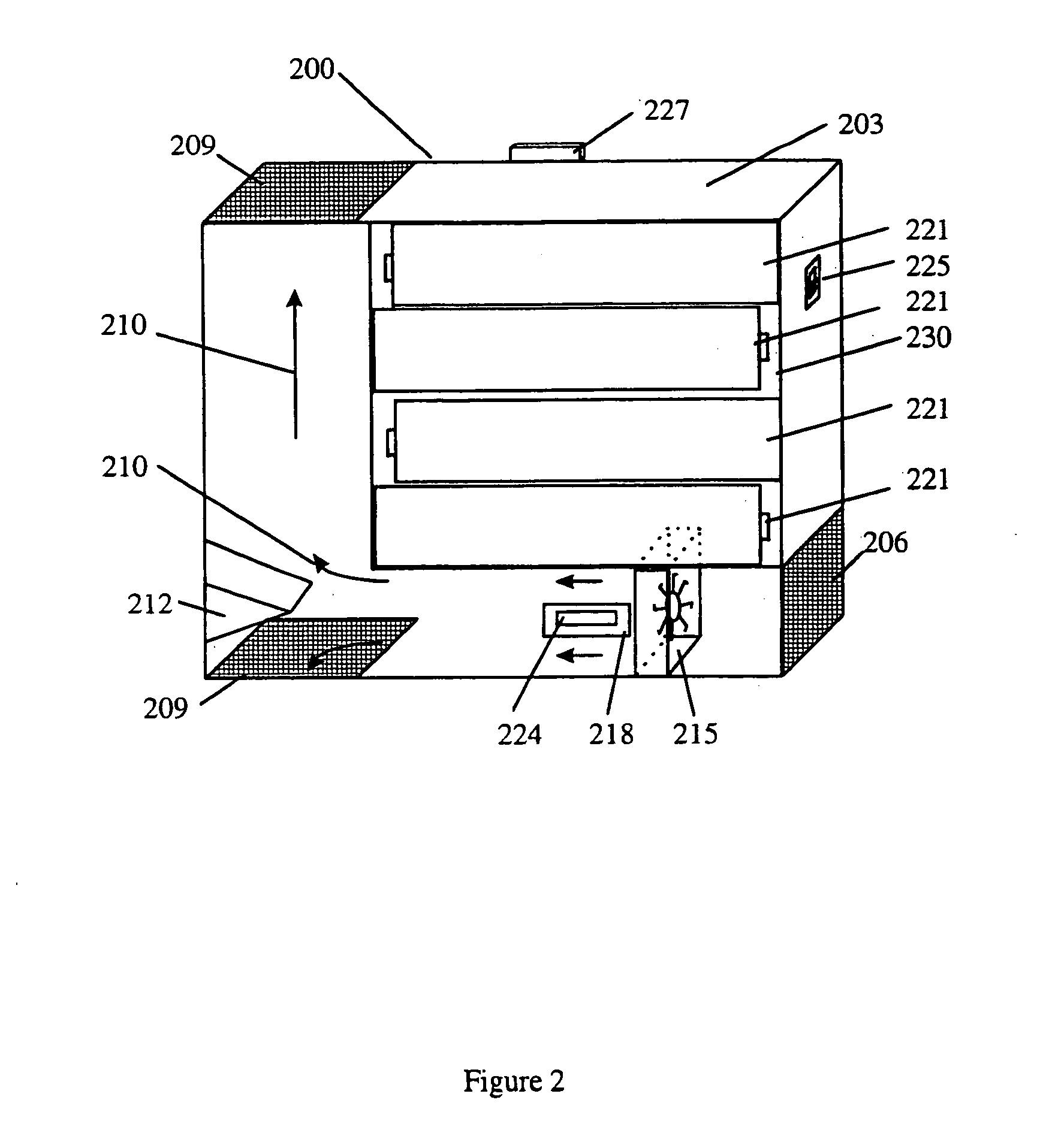Methods and personal protection devices for repelling insects
a technology for repelling insects and personal protection, applied in the field of methods for repelling insects and devices, can solve the problems of user suffering insect bites and insect landings in the area, topical repellents suffer from the drawback of only protecting the skin to which they are applied, and the effect of reducing the amount of repellents
- Summary
- Abstract
- Description
- Claims
- Application Information
AI Technical Summary
Benefits of technology
Problems solved by technology
Method used
Image
Examples
reference example 1
Caged Mosquito Repellence Test Method
[0124] Mosquito repellency is tested with Aedes aegypti mosquitoes. Mosquitoes, aged four to twenty days, are kept in SYSCO® 355 ml disposable paper food containers (available from Sysco Corporation of Houston, Tex.), each with a wedding veil covering. On the veil are placed two cotton balls, one soaked in water and one in 0.3 M sucrose to feed the mosquitoes. The cotton balls are removed two to 24 hours prior to repellency testing.
[0125] The covered containers are placed in a wooden frame cage with dimensions seven by five by three feet that is lined on the top and sides with wedding veil to allow air flow. A human subject enters the cage through a door frame in one of the sides. Once inside, the subject releases about twenty mosquitoes from a container, and a timer is started for the control period to allow the mosquitoes to be attracted to the subject. After thirty seconds, the number of mosquitoes that landed on the subject is counted, with...
example 1
Device Using Bulk Heating and Blowing Means to Disperse Insect Repellent
[0127] A mosquito-repellent device is constructed using a first aluminum plate heated by electrical resistance. A second aluminum plate smaller than the first is placed on the first plate, so that the two plates are in thermal contact. A thermocouple is placed onto the smaller plate so that its temperature can be monitored and controlled at 45° C. Adjacent to the smaller plate is a fan (3.5 cubic feet per minute) which blows air over the smaller plate. Twenty milligrams of bioallethrin is placed on the smaller aluminum plate so that the bioallethrin is heated and its vapors blown by the fan. The device is tested according to the method of Reference Example 1.
[0128] Mosquitoes are repelled by bioallethrin as indicated by a reduction in the number of mosquitoes landing on the human subject within one to three minutes after activating the device. The numbers of mosquitoes landing on the subject in each time inter...
example 2
Device Using Bulk Heating and Blowing Means to Disperse Insect Repellent
[0139] The mosquito-repellent device of Example 1 is tested according to the method of Reference Example 1, except that 30 milligrams of empenthrin is used as the insect repellent instead of bioallethrin, and the temperature to which the empenthrin is heated is 30° C.
[0140] Mosquitoes are repelled by empenthrin as indicated by a reduction in the number of mosquitoes landing on the human subject within one to three minutes after activating the device. The numbers of mosquitoes landing on the subject in each 30 second interval after activation of the device are below in Table E5.
PUM
 Login to View More
Login to View More Abstract
Description
Claims
Application Information
 Login to View More
Login to View More - R&D
- Intellectual Property
- Life Sciences
- Materials
- Tech Scout
- Unparalleled Data Quality
- Higher Quality Content
- 60% Fewer Hallucinations
Browse by: Latest US Patents, China's latest patents, Technical Efficacy Thesaurus, Application Domain, Technology Topic, Popular Technical Reports.
© 2025 PatSnap. All rights reserved.Legal|Privacy policy|Modern Slavery Act Transparency Statement|Sitemap|About US| Contact US: help@patsnap.com



